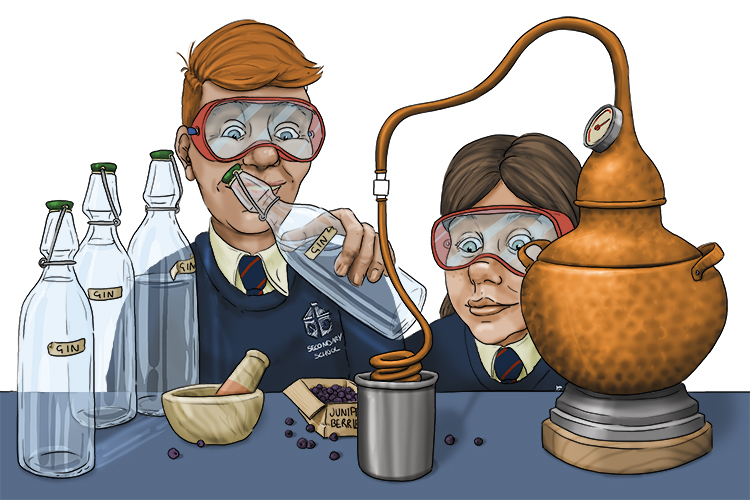Secondary Economy – Concerned with manufacturing, encompassing industries which produce a finished, usable product or are involved in construction. It includes steel or motor vehicle production
To remember the meaning of the term Secondary Economy, use the following mnemonic:
In the secondary school (which is the second main school kids go to) the kids had manufactured gin in the classroom (the secondary economy is concerned with manufacturing).

The secondary economy takes the output of the primary economy (i.e., raw materials) to make finished products that can be used by other businesses, or which are sold to domestic consumers (ordinary people).
Manufacturing industries consume huge amounts of energy. They produce waste materials and, in many cases, pollution. Examples include steel, cement, car, pharmaceutical and food manufacturing.
Manufacturing processes are responsible for a large percentage of the CO2 that goes into the atmosphere, and therefore for a large proportion of global warming.




